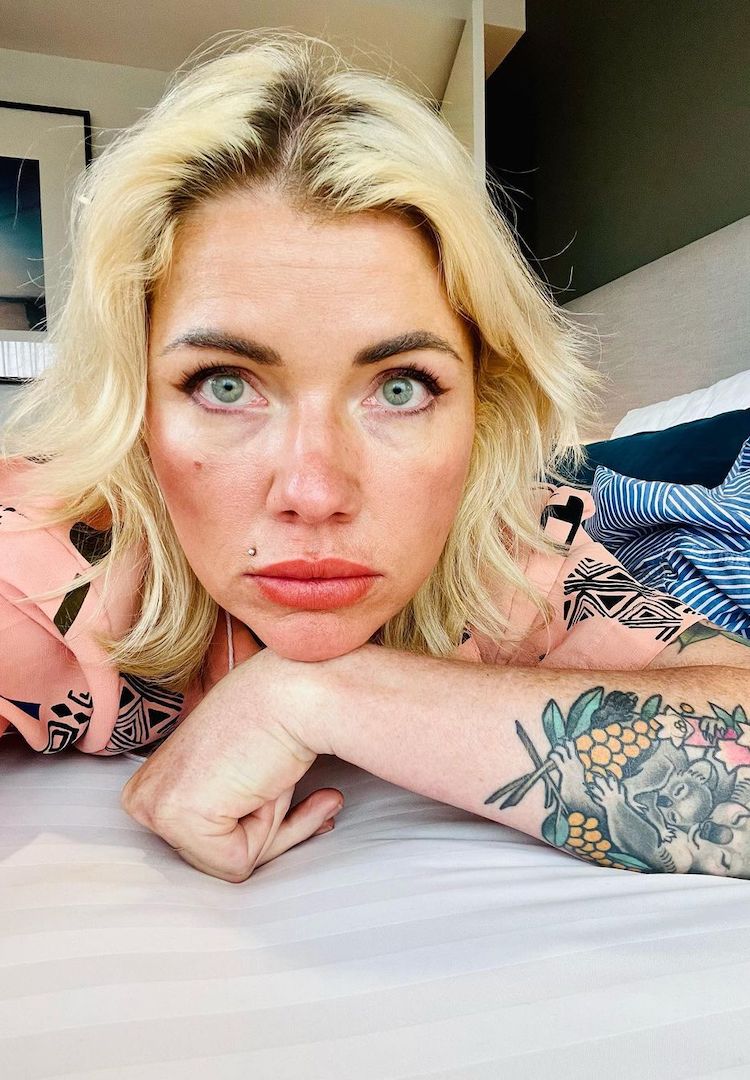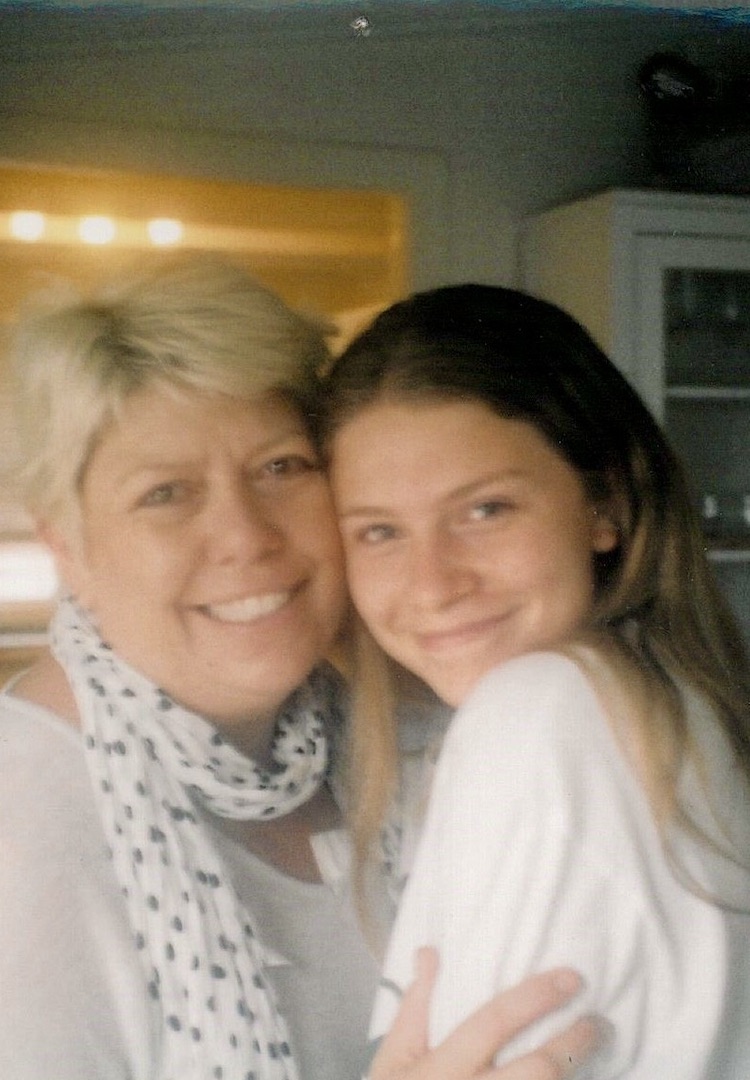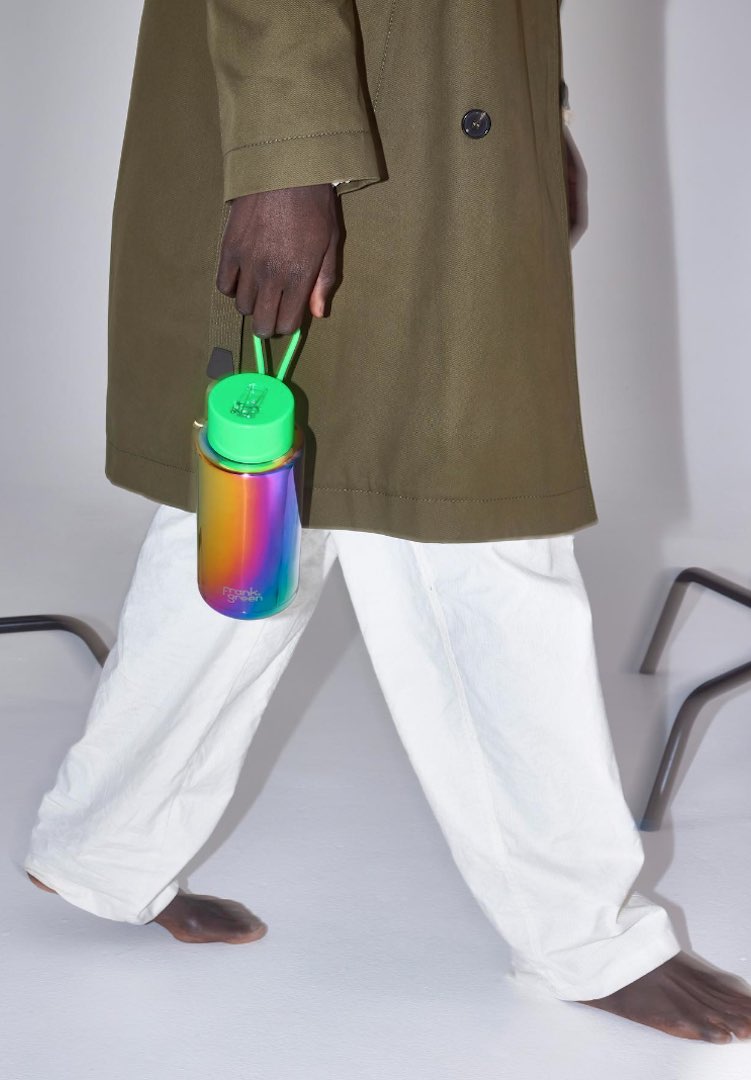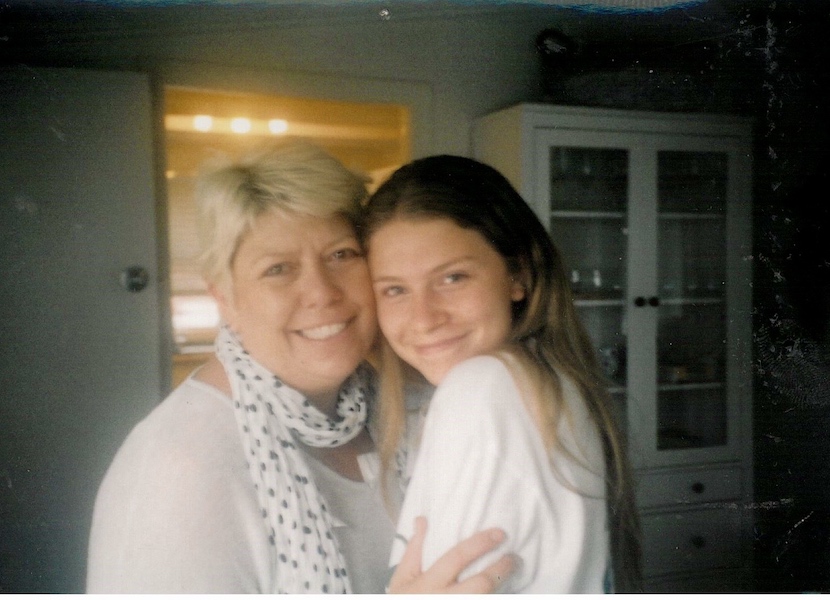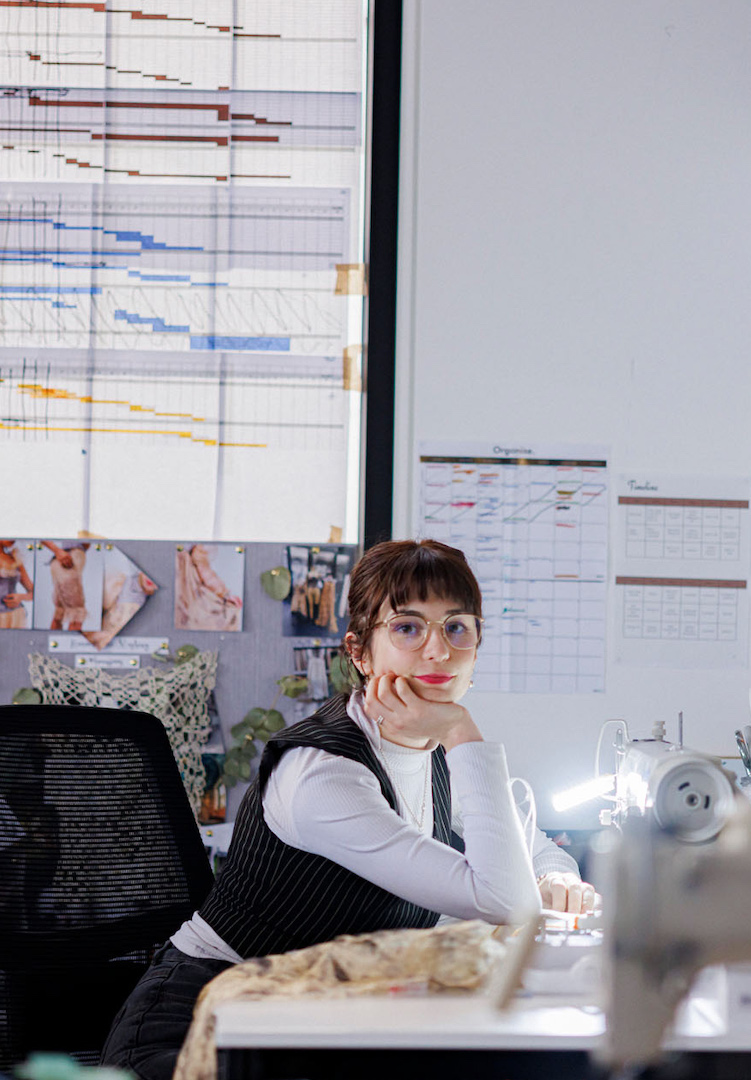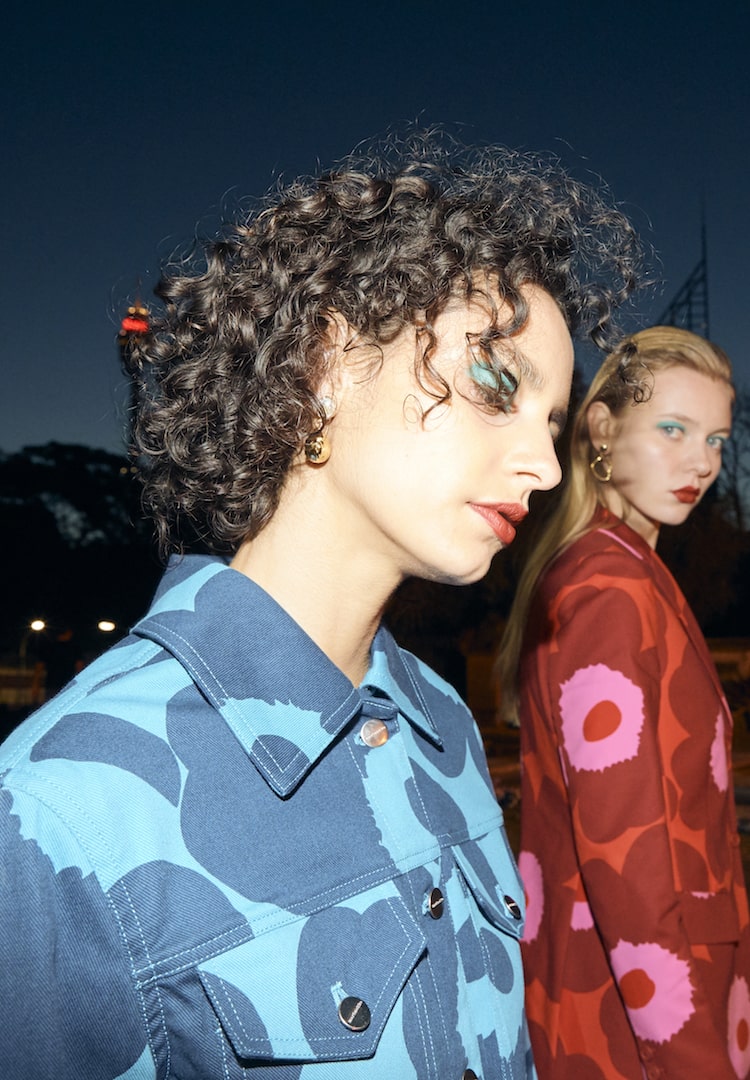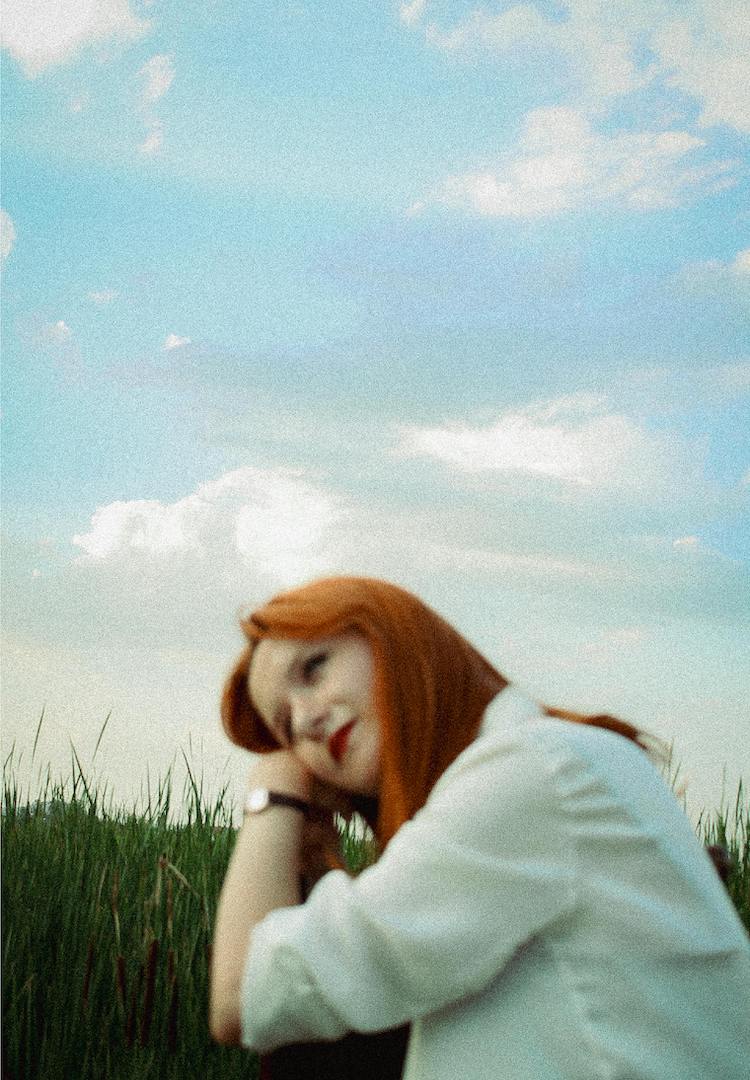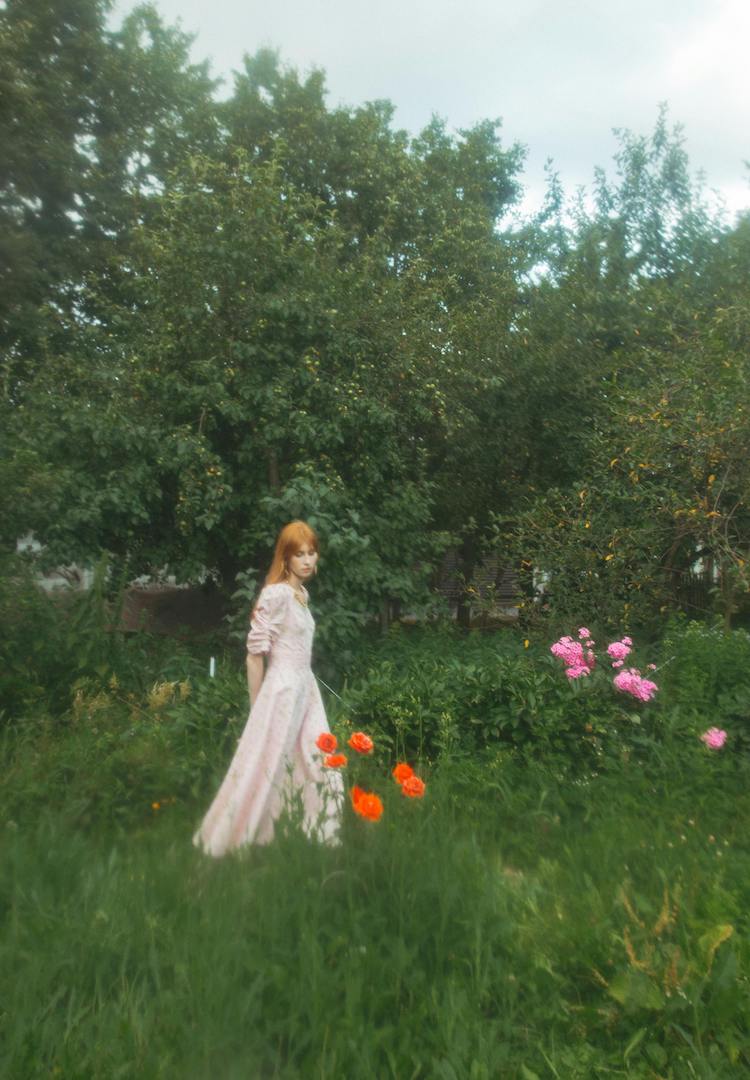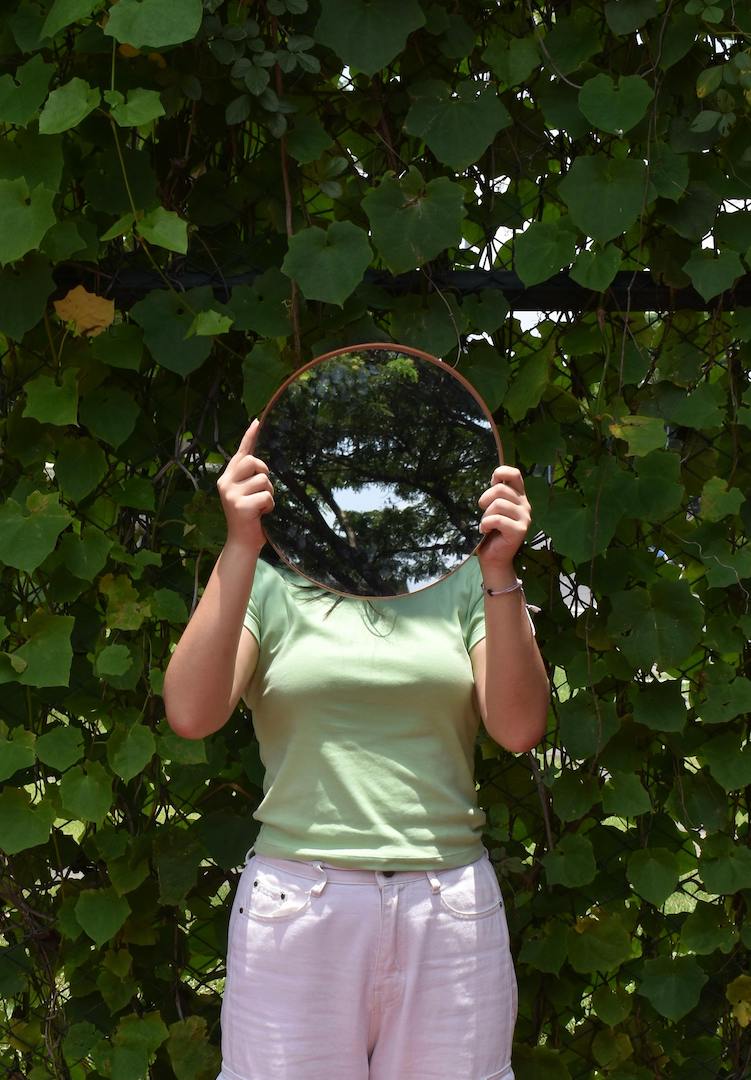“I realised I hurt because I’d loved”: What I learnt from losing my mum at 23
WORDS BY BRONTE WINNEM
“What a privilege that is, to love something so profoundly that it almost destroyed me.”
Two Augusts ago, I was working from home at my old PR job during Sydney’s last lockdown when my dad came upstairs and told me two things I will never forget. Leaning on the balustrade, staring down at the step below, he told me that my mum’s oncologist had said we had finally reached the end. We were no longer counting my mother’s life in years, but months. “She will die soon… oh, and we’re having Chinese for dinner,” he said.
Three months later, I was (of all places) in the McDonald’s drive-through line, having just left the palliative care ward at Mona Vale Hospital. The last week had been a dizzying nightmare – my mum’s liver had begun to shut down, she was no longer lucid or verbal and her whole body, including the whites of her eyes, was an unsettling shade of marigold.
Interested to hear how others navigate the world? Head to our Life section.
I got a phone call from my dad. He had been washing his hands in the sink adjacent to my mum’s hospital bed when he heard her take a long, deep breath in. “I think she is gone… I think you should come back.”
I still remember the night they sat me and my older brother Max down on a wrinkled, black leather couch to tell us that Mum was “very sick.” I had just turned 11 and would be entering year seven once the summer was over. Over the next five years of her battle with breast cancer, and the following six when she fought through a second diagnosis of metastatic breast cancer, I teetered carefully on the line between stoic and sensitive.
I reassured my mum that I loved her and that everything would be okay before dragging myself upstairs. I sat down on the floor next to my single bed in a room where the walls were painted a fitting sad hue of blue. With my knees pulled up against my chest, I cried alone in the dark. I clasped my hands together in between tears and whispered to a God I no longer believed in, “Please, do not let my mum die.”
Now, 11 years later, 30 minutes had painfully elapsed since that phone call with my dad. I was cross-legged on the floor of the car park outside her room with glass and dirt and disbelief cutting into my shins. My prayer had just been refused. It was incomprehensible and overwhelmingly absurd to be sitting there on that warm and unassuming November night with my mother’s lifeless body only a few metres away from me.
In between the bewildering task of texting my friends to let them know she was, in fact, ‘gone’, and incessantly refreshing Instagram for a reprieve from reality, I received a message from a guy on Hinge asking me, “How’s your Friday treating you, Bronte?” (You can laugh, I did.) I couldn’t shake just how jarring and incongruous death was. How all of these opposing things, the traumatic and the trivial, could exist at once.
Last Sunday delivered me a milestone I never wanted to live through and one I thought would be impossible – it’s been two years since my mum died at 53. While I’m at a distance from the throes of such raw grief, the first 12 months were agonising and felt like a severe regression from adulthood.
I was deeply disturbed by the way the world around me carried on while I struggled to mentally leave that car park and all that had transpired there. I quit my job because I physically couldn’t cope with having to make small talk. I couldn’t talk about the weather while grappling with the fact that Mum would never meet my children or see me get married and that one day, I might outlive her.
I barely slept, plagued by night terrors. I’d wake up out of breath with a racing heart and a relentless inner dialogue that reminded me of the devastating truth – she’s dead, she’s dead, she’s dead. I sat with my counsellor every Monday afternoon and asked her how I would survive this, sometimes wondering if I even wanted to.
Once, after I hadn’t replied for a few hours, my best friend Nikki found me sobbing at the foot of my mum’s closet hugging her clothes, mumbling “I want my mum back.” I’d drunkenly start fights with friends on nights out and run away from them because I so desperately wanted to be found and rescued from the depth of this suffering. I lost my appetite for the entirety of November, December and January, surviving only on pieces of Vegemite toast and Coke Zero.
I bought every grief book I could find searching for solace, looking for someone to articulate just how fucked up and irreversibly wrong life felt without her. My days consisted of walking lap after lap of Long Reef Headland, laying on my back with glassy eyes listening to Phoebe Bridgers and binge-watching any reality TV I could get my hands on to escape my own.
I cried whenever I saw middle-aged women. I cried whenever an old person smiled at me. I cried at the sight of a pregnant woman. I cried in the morning, I cried at 3pm, I cried at sunset, on my balcony, in my bed, in elevators, in the fresh produce aisle, at the mall and the petrol station.
I was chaotically sad and honestly, I needed to be. I felt guilty for feeling anything else. Giving into being straight-jacketed by grief felt like I was properly honouring just how much I loved her. But somewhere along the way, in those moments where I searched the world for reminders of what I had lost, I started to notice something else, too.
While I still felt a dull ache when watching a mother rest her head on her teenage daughter’s shoulder one night on the Piccadilly line in London (on my spur-of-the-moment trip overseas), I mostly just felt an overwhelming love for my mum. I once had a love like that mother and daughter on the underground, and what a beautiful thing that was. I felt so grateful. I still feel so grateful. I realised, I hurt because I’d loved. What a privilege, to love something so profoundly that it almost destroyed me.
This ineffable pain had cut me open. But being vulnerable to life – the good, the bad, its gentleness, its violence, its cruelty and its kindness – is something I wouldn’t change. Like Leonard Cohen says in ‘Anthem’, “There’s a crack, a crack in everything. That’s how the light gets in.”
Experiencing such deep pain means I am now lucky enough to feel all the beautiful and awe-inspiring things in life just as deeply. Of all the things my mum has gifted me (thick hair, crooked teeth fixed by two stints of braces, an affinity for sarcasm) this enduring tenderness for life is the one that’s served me best.
I see it everywhere now. I feel peace and gratitude in the small things that make being alive so extraordinary – listening to the sounds of the Merri Creek, sitting beside my dad and watching the news when I visit him in Sydney, swapping smiles with a stranger as we pass one another, hearing a child laugh, holding hands, feeling the warmth of the sun. A tight hug, a long kiss and a good tiramisu.
I still have moments where surviving this feels too hard. I can’t begin to count the number of times I’ve cried on the couch out the front of my sharehouse where I now live in Melbourne, whispering to the sky (where I suppose she lives now) that I “can’t do this”. When I have bad days, if I’m sick or something doesn’t go my way, I ache for my mum. I always will. And that’s okay. I have so many hurdles and painful thresholds to cross without her, but there’s a great life ahead of me. I believe that.
I’d never quite understood the last lines of the final card my mum ever wrote me in May of 2021. She said, “I wanted you to go through this pain and still be true to yourself. Life isn’t always fair… but it’s how you deal with the setbacks. Never give up, never stop being you, and love yourself. Be proud. Fly my girl.” I think I get it now.
If you’re struggling with grief, try these resources.

